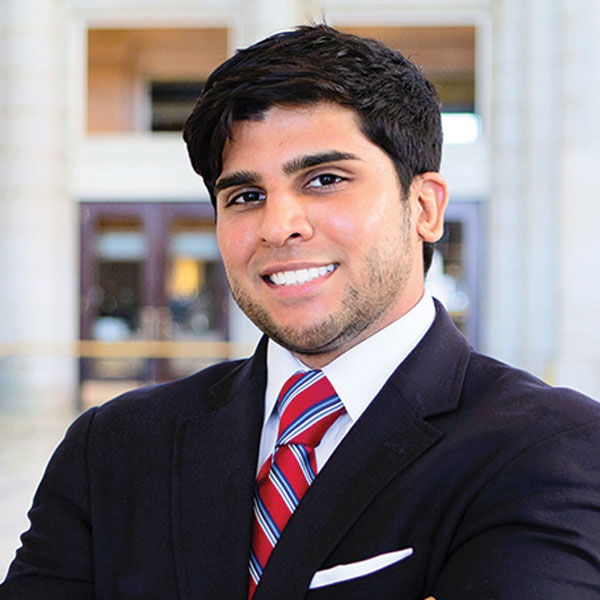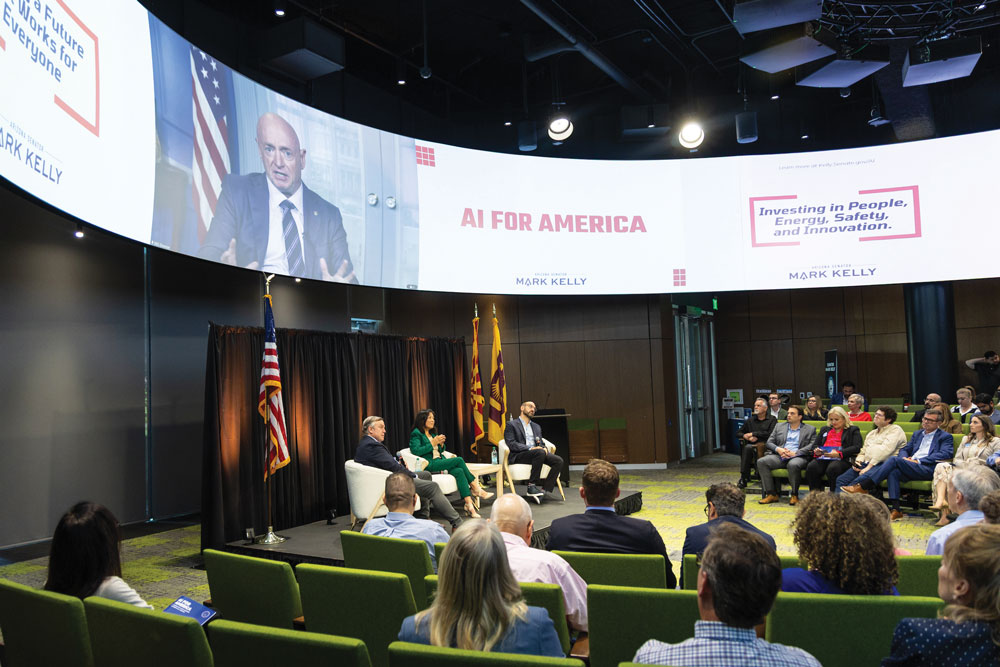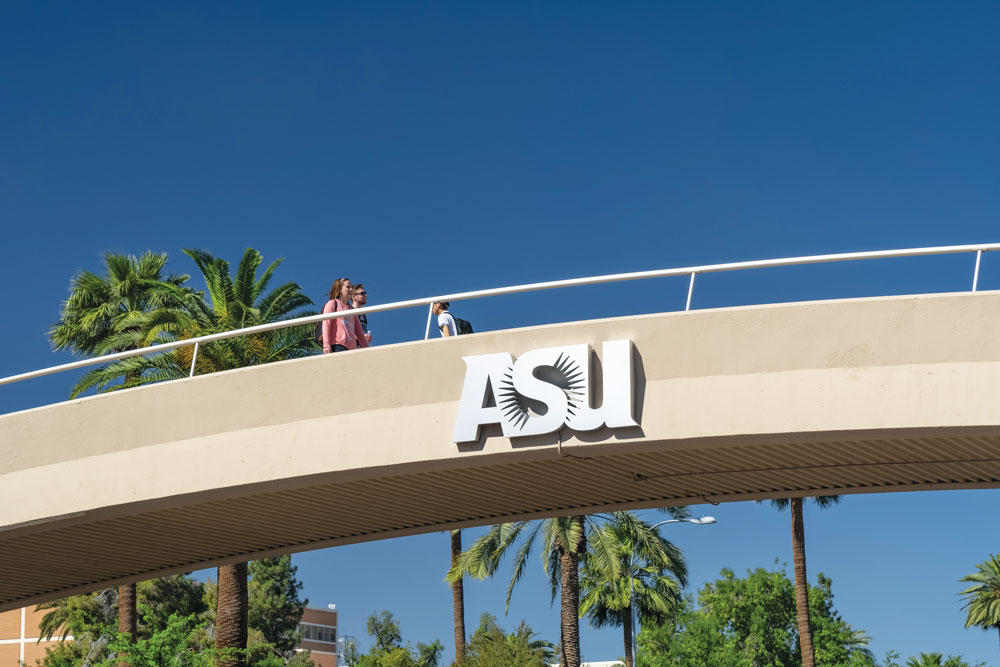Cognite, a leading industrial data operations platform incorporating the power of data and AI, has had a busy 2025 as the company aligns operations with AI growth and innovation policies of various nations and regions. The company opened a center of excellence in Bengaluru, India, in March 2025. Five months later it incorporated a new entity in Abu Dhabi. And the Norwegian company moved its global headquarters to Tempe, Arizona.
“The concentration of activity in the artificial intelligence world is in the U.S. West Coast,” Cognite CEO Girish Rishi wrote in the Phoenix Business Journal in August, “concentrated in California’s Silicon Valley, leveraged in Seattle, and increasingly in the Phoenix and the Salt Lake City corridors. Norwegians are moving here to partake in the economic upswing being driven by AI and the state’s burgeoning technology ecosystem. Arizona is increasingly in the chatter with entrepreneurs and investors, not only in the United States but internationally.”
The Cognite team initially focused on Austin and Houston. But an August 2024 visit turned Greater Phoenix into the choice due to five factors, Rishi wrote: talent, community, brand, access and business-friendliness. Did we mention community? Rishi, who previously served as CEO of Arizona tech company Blue Yonder, saluted support from all corners, including GPEC, the Arizona Commerce Authority, The Noble Agency and pure-play tenant rep firm Keyser Commercial Real Estate.
“This personal, natural and authentic embrace was perhaps the biggest reason we are basing ourselves in Phoenix,” Rishi wrote. “My colleagues were drawn to schools, faith-based organizations that they belong to, ease of daily life, access to diverse restaurants and other amenities. And yes, Costco. Our Norwegian colleagues are in love with Costco.”
The Norwegian contingent joins an increasingly global population in the area, including at Arizona State University, which was documented in the 2023-2024 school year with the fourth largest international student population in the country at 18,430 students.
Education & Industry Get Educated Together
Meanwhile, the talent quotient figures to grow stronger in the coming years as AI programs and curricula ramp up as fast as the data centers proliferating in the region.
ASU in July partnered with SEMI, the industry association serving the global semiconductor and electronics design and manufacturing supply chain, to announce a new slate of five courses through SEMI University’s platform. Two of them focus on AI foundations: prompt engineering and scripting ChatGPT with Python.
U.S. Senator from Arizona Mark Kelly in September unveiled an “AI for America” plan that had industry workforce training — from K-12 to reskilling — as a central plank. “New workers entering the job market, whether from high school, community college, the trades or a university, must be prepared to begin meaningful careers as the labor market shifts with the adoption of AI tools,” Kelly writes in the plan, which he discussed by video link at an event featuring visionary Arizona State University President Michael Crow held on ASU’s campus in Tempe. At the same time, he expects AI and tech employers to pay into an AI Horizon Fund to support workforce training and for energy and water infrastructure investments.

Shalin Jyotishi, Founder and Managing Director, Future of Work and Innovation Economy, New America
The Trump administration released its own AI action plan in August, a vision for which the country’s more than 1,100 community colleges have already been preparing by offering AI training to workers in sectors from manufacturing to health care, says Shalin Jyotishi, founder and managing director of the Future of Work and Innovation Economy initiative at the New America think tank.
In fall 2024 his team partnered with the National Science Foundation to launch the Accelerator for Community Colleges in the Innovation Economy, dedicated to building capacity for emerging tech workforce development at community colleges, including AI. Maricopa Community College District in metro Phoenix is part of that accelerator. It’s also part of the National Applied AI Consortium (NAAIC) launched by Antonio Delgado, vice president of technology partnerships at Miami Dade College, which creates a national community of practice that has already supported 950 community college leaders from 40 states.
Asked to spell out progress in the Phoenix region, Jyotishi says, “As a co-lead of the National Science Foundation-funded National Applied AI Consortium, the Maricopa Community College District is undertaking the urgent task of helping the 2-year college sector build its capacity for AI education by discerning signal from noise alongside employers. Along with Miami Dade College in Florida and Houston Community College in Texas, Maricopa is working to implement the ‘gold standard’ for employer engagement among community colleges: the Building Industry & Leadership Team (BILT) model, also born from NSF funding.”
Unlike traditional employer advisory committees, the BILT is a co-creation process for curricula, Jyotishi explains. Employers and educators vote on specific knowledge, skills and abilities to be embedded in curricula in a 12- to 36-month timeframe with a frequent meeting cadence. Jyotishi says his team at New America has interviewed dozens of students in community college AI programs, finding that many students are seeking stronger involvement from employers, especially as many students are turning to community colleges to reskill as working professionals themselves.
“For example, William Glover, who was studying in the AI associate’s degree program at Chandler-Gilbert Community College in Arizona, told us that his professors encourage students to initiate and lead AI projects in the classroom,” Jyotishi says. “As a full-time quality assurance employee at a manufacturing company, he told us that he is ‘able to take these AI and Machine Learning Program classes and tailor them to the specific needs that I am dealing with in my job.’
“As a lead in NAAIC, Maricopa is working to establish a BILT for AI pooling expertise of big tech companies and small and medium-sized employers alike to determine what skills are needed for students in AI programs,” Jyotishi says. “The BILT insights will be key to fostering the alignment of curricula with labor market needs at community colleges as well as work-based learning partnerships with employers to create internships, co-ops and other collaborations.”

One of many AI initiatives affiliated with metro Phoenix but with national implications is the “AI for America” plan unveiled by Arizona Senator Mark Kelly during an event staged at Arizona State University in September.
Photo by Emma Fitzgerald/ASU News

